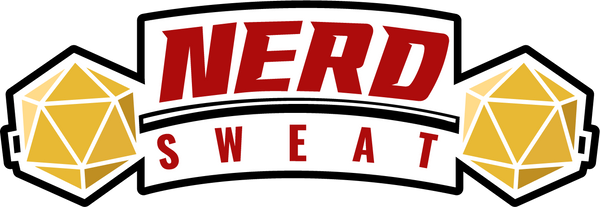
Building a Reputation System in a West Marches Campaign: Adding Depth to the Common Grounds Guild of Greyhawk
In a living, breathing West Marches campaign like the Common Grounds Guild of Greyhawk, players shape the world around them—but what if the world remembered them, too?
A reputation system adds long-term consequences to player actions, deepens immersion, and helps make recurring NPCs and factions feel real. While we haven’t implemented this system yet, we’re exploring ways it might fit into the Greyhawk-inspired world we’re building at Common Ground Games in Dallas, TX.
If you’re curious about how such a system might work—or want to build one into your own campaign—read on.
Why Add a Reputation System to a West Marches Campaign?
A reputation system lets the game world respond organically to what players do. Whether they liberate a village, anger a noble house, or steal from a temple, their deeds start to matter beyond the immediate session. Especially in drop-in/drop-out campaigns like ours, this adds continuity and roleplay depth that can enrich every table.
Benefits include:
- Recurring consequences and rewards
- Faction alignment and rivalry
- Emergent storytelling across multiple tables
- Easy hooks for DMs and players alike
For West Marches campaigns with rotating parties and DMs, tracking reputation across the shared world helps tie everything together.
Designing the Reputation System for Greyhawk
The World of Greyhawk is full of factions, faiths, political power players, and guilds—all ripe for reactive storytelling. Here are a few approaches we’re considering for integrating reputation into the Common Grounds Guild of Greyhawk:
1. Faction Reputation and Missions
Players could earn favor (or infamy) with key Greyhawk factions—like the Scarlet Brotherhood, the Knights of the Hart, or the Circle of Eight—based on the missions they take and the choices they make.
Example:
- Completing a covert mission for the Thieves’ Guild of Greyhawk City could boost your party’s standing with them, unlocking access to fences, secret quests, or magical items.
- Conversely, betraying or failing them might blacklist you from specific locations or merchants.
DM Tip: Use a +10 to -10 scale per faction to track party reputation. Keep it simple with three tiers: Neutral (0), Allied (5+), Enemy (-5 or less). Tools like Notion or Obsidian Portal are great for shared tracking.
2. Guild Recognition and Rank
In-universe, the Common Grounds Guild functions as a coalition of adventurers. Reputation within the guild itself determines player access to advanced quests, downtime benefits, or leadership roles.
Example:
Players might start as “Initiates” and, after five successful missions and positive peer reviews, ascend to “Trusted Agents,” gaining access to guild resources like rare spell scrolls or magic mounts.
This adds progression beyond leveling and encourages roleplay between players and NPCs.
3. Regional Reactions and Social Status
Imagine returning to a town and hearing a bard sing tales of your last quest—or being chased out for burning down a sacred grove. NPCs reacting to your deeds enhances immersion.
Example:
- In the City of Hardby, a party that thwarted a local cult may receive a hero’s welcome—while one that consorted with infernal powers is met with torches and pitchforks.
Use tools like random reaction tables or relationship meters to handle these encounters on the fly.
How to Track It All (Without Losing Your Mind)
Reputation systems only work if they’re manageable. Here's how we’re considering doing it:
- Shared DM Tracker: A centralized digital log (using Google Sheets or Notion) for faction scores and notable deeds.
- Player-Facing Reputation Cards: When a major shift occurs, hand out an in-world “Notice of Favor” or “Wanted Poster” as a physical prop.
- Recurring NPCs: Have faction representatives show up periodically to check in, warn players, or give rewards.
Resource Reference:
- Sly Flourish’s Lazy DM Companion (great for creating dynamic NPCs on the fly)
- Strongholds & Followers by Matt Colville (offers systems for organizations reacting to player actions)
- Greyhawk Wiki (Canonfire.com) for faction lore and political history
Looking Ahead: Will the Guild Keep Score?
We haven’t officially rolled out a reputation system in the Common Grounds Guild of Greyhawk, but it’s something we’re excited to test. Our hope is that it will add texture to the campaign and reward player investment beyond gold and XP.
Imagine a player walking into Common Ground Games and having other players ask:
“Hey… weren’t you the ones who cleared the Temple of Elemental Evil? The guild’s still talking about that.”
That’s the kind of legendary storytelling we want to foster.
What Do You Think?
Would you like to see a faction-based reputation system in play? Have you seen this used effectively in other campaigns? Share your thoughts in our Discord or talk to your DM during our next Guild Day!
Want more tips on building a living world in Greyhawk?
Subscribe to our blog and follow the Common Grounds Guild of Greyhawk campaign on Obsidian Portal for updates, lore, and session recaps.
Let’s build something legendary—one reputation point at a time.
